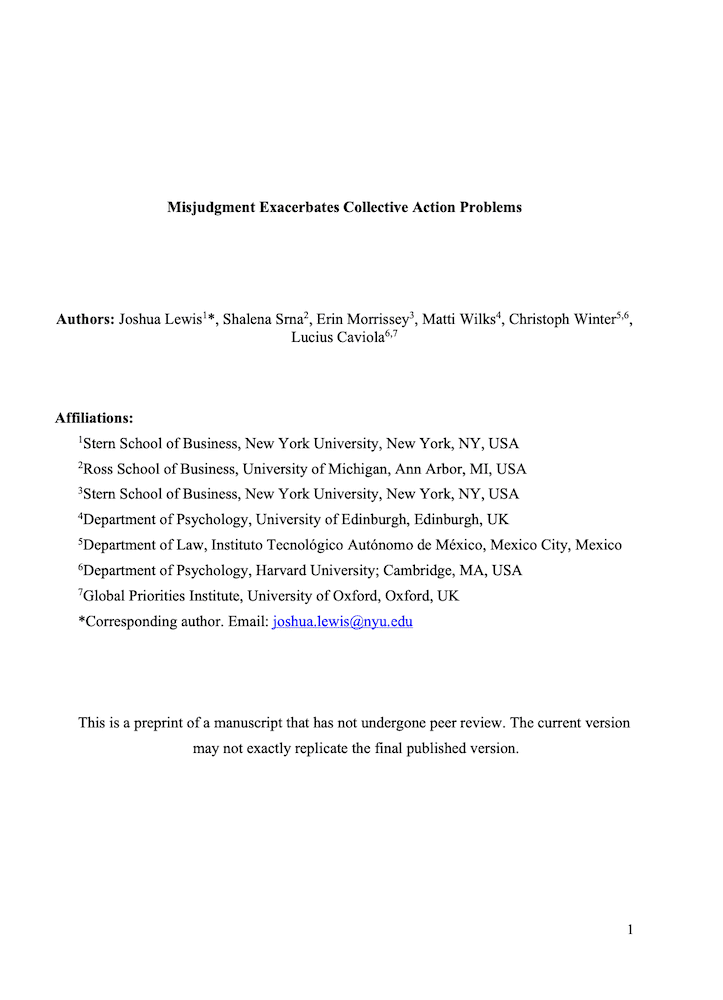Misjudgment Exacerbates Collective Action Problems
Joshua Lewis (New York University), Shalena Srna (University of Michigan), Erin Morrissey (New York University), Matti Wilks (University of Edinburgh), Christoph Winter (Instituto Tecnológico Autónomo de México and Harvard Univeristy) and Lucius Caviola (Global Priorities Institute, University of Oxford)
GPI Working Paper No. 2-2024
In collective action problems, suboptimal collective outcomes arise from each individual optimizing their own wellbeing. Past work assumes individuals do this because they care more about themselves than others. Yet, other factors could also contribute. We examine the role of empirical beliefs. Our results suggest people underestimate individual impact on collective problems. When collective action seems worthwhile, individual action often does not, even if the expected ratio of costs to benefits is the same. It is as if people believe “one person can’t make a difference.” We term this the collective action bias. It results from a fundamental feature of cognition: people find it hard to appreciate the impact of action that is on a much smaller scale than the problem it affects. We document this bias across nine experiments. It affects elected policymakers’ policy judgments. It affects lawyers’ and judges’ interpretation of a climate policy lawsuit. It occurs in both individualist and collectivist sample populations and in both adults and children. Finally, it influences real decisions about how others should use their money. These findings highlight the critical challenge of collective action problems. Without government intervention, not only will many individuals exacerbate collective problems due to self-interest, but even the most altruistic individuals may contribute due to misjudgment.
Other working papers
Social Beneficence – Jacob Barrett (Global Priorities Institute, University of Oxford)
A background assumption in much contemporary political philosophy is that justice is the first virtue of social institutions, taking priority over other values such as beneficence. This assumption is typically treated as a methodological starting point, rather than as following from any particular moral or political theory. In this paper, I challenge this assumption.
The asymmetry, uncertainty, and the long term – Teruji Thomas (Global Priorities Institute, Oxford University)
The Asymmetry is the view in population ethics that, while we ought to avoid creating additional bad lives, there is no requirement to create additional good ones. The question is how to embed this view in a complete normative theory, and in particular one that treats uncertainty in a plausible way. After reviewing…
Economic inequality and the long-term future – Andreas T. Schmidt (University of Groningen) and Daan Juijn (CE Delft)
Why, if at all, should we object to economic inequality? Some central arguments – the argument from decreasing marginal utility for example – invoke instrumental reasons and object to inequality because of its effects…

